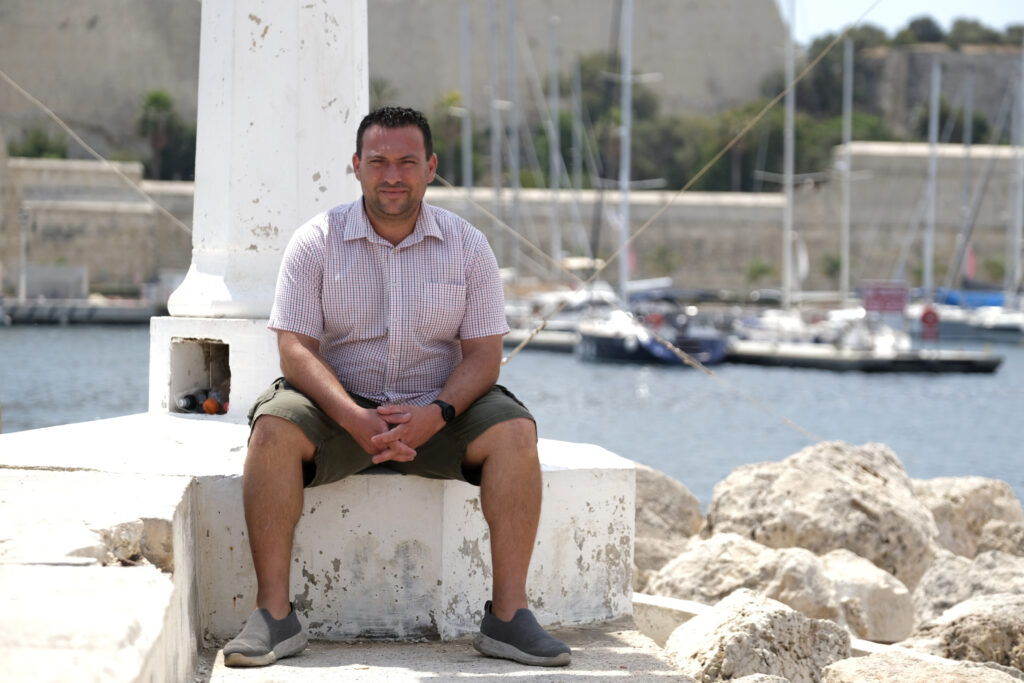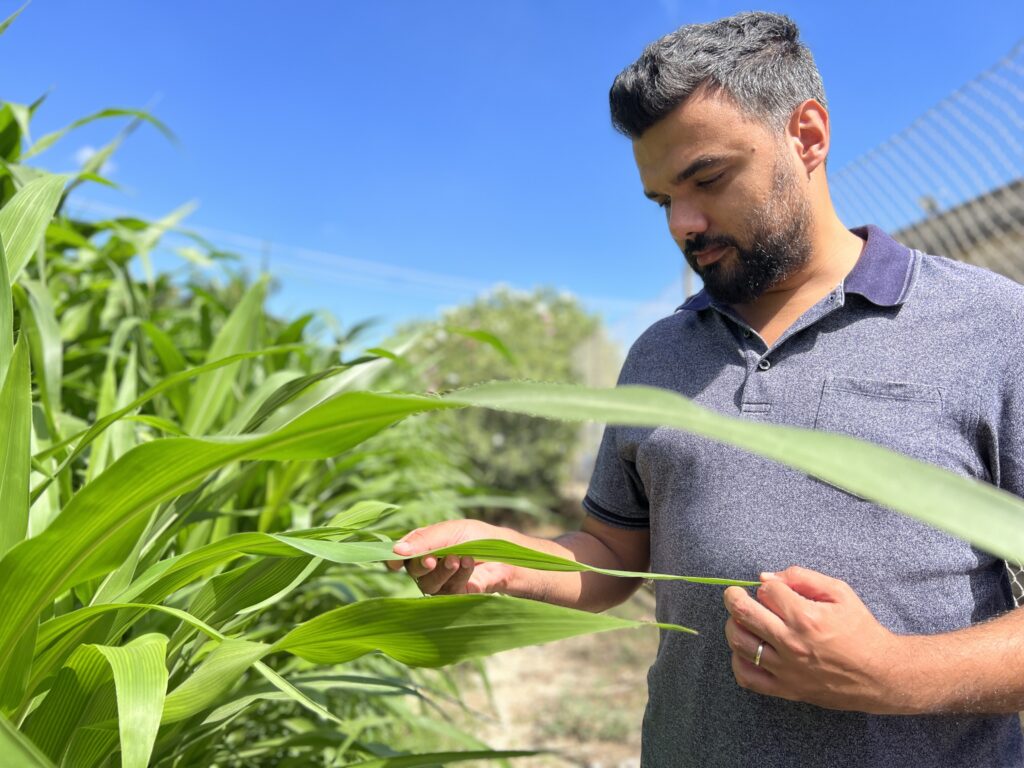Thunderstorms are becoming more frequent. Heatwaves are lasting longer. The sea is warming up. All these factors that have been happening in Malta and Gozo over the past decades have an impact on crops, our sea, health, tourism and ultimately the economy. Claudia Calleja spoke to several experts to paint a picture of how climate change is impacting our islands.
Climate change. We hear the term used very often. Some people take it seriously and are committed to playing their part to save the planet. Others shrug it off as a myth.
But the facts speak for themselves. The climate is changing and this is impacting our lives.
The writing is on the wall, according to John Paul Cauchi, who has a PhD in environmental public health from the Queensland University of Technology in Australia.
“Look around you – our news is strewn with reports of the largest ever wildfires, worst ever droughts, temperature records being toppled year on year. We are entering a new and dangerous period as Earth’s climate shifts to a warmer one, with catastrophic consequences both to our biosphere and our global civilisation. Questioning climate change is like questioning gravity, or that the Earth is round – the science is well established now,” says Cauchi who used to chair the TerraFirma collective of environmental NGOs.

Yet, as the world’s climate changes, governments around the world have their eyes locked on one other objective: upping their GDP. This, says Cauchi, is shortsighted and unsustainable.
“We cannot build a home and ever-higher ceilings while dismantling supporting walls. That is exactly what we’re doing as a species. While resilient, Earth’s systems are facing a thousand arrows’ onslaught through human activity, and the relatively benign conditions we are used to, which allowed civilisation to flourish, could collapse.”
We are already observing ‘flickering’, where extreme weather events are becoming far more common, he says.
The world has warmed by 1.2°C. If all current pledges to reduce carbon emissions are kept we are heading to a catastrophic 2.4°C – 2.7°C. This is grossly unsustainable, he says.
A threat to marine life
Malta is not being spared. “Overall, trends point to increasing temperatures. Malta’s mean ambient temperature has increased by over 1.5°C over the past 50 years on average, and trends point to a warming of 0.2°C per decade.
“80 per cent of the warmest 20 minimum night-time temperatures since 1952 occurred during the last 20 years. This warming will likely accelerate in the coming decades if climate change remains unaddressed,” he says.
Sea temperatures are also rising. “The surface waters surpassed the 30°C mark during the month of August for the first time in the summer of 2021, whilst this benchmark was reached this year during the last days of July within a few local coastal embayments. Water sea temperatures, especially of surface waters, are extending for a longer period in the autumn calendar season, with the first significant cooling of our seas being observed in the latter half of November,” says marine biologist, researcher and University of Malta lecturer Prof. Alan Deidun.
The thickness of the sea’s surface water layer is also running amok, resulting in a deeper penetration of normally warm surface water, affecting more species. The change in temperature results in a shift in the marine environment that is resulting in a change in composition of the species in our waters as well as a change in the lifecycle of some of the species.

Warmer waters attract alien marine species, including dreaded invasive ones, since they are largely of tropical origin.
“The invasive alien species exert a significant socio-economic impact, either by being toxic or venomous/stinging, or by decimating native biota. Some native marine species, including the bearded fireworm (busuf) and the ornate wrasse (lhudi) are favoured by the higher temperatures and their increasing numbers disrupts the stability of marine ecosystems,” says Deidun.
The repercussions are many. Besides alien species, higher water temperatures also facilitate the reproduction of many jellyfish species.
Coral bleaching, through which corals shed their flamboyant colours since their partners (mutualistic) microscopic algae die off, is also reportedly happening on our own turf. Warmer sea temperatures carry less dissolved oxygen such that sessile (non-moving) species are stressed, whilst a number of motile species (including sea urchins) will relocate to deeper waters to escape the higher incidence of infection by pathogens which the higher sea temperatures bring along, Deidun adds.
Keystone species, such as Neptune grass meadows(Posidonia oceanica), also bear the brunt of higher sea temperatures given that their shoots are colonised by higher densities of competing epiphytes, which shade the plant from the sunlight it needs.
Phytoplankton populations, upon which the entire marine ecosystem hinges, are also impacted – reverberating on populations of climax predators at the top of the food chain, which might change their customary migration routes, such as the dolphin fish (lampuka).
Storms and floods
We have also experienced a significant change in rainfall patterns, with an overall trend of decreasing precipitation, with rainfall occurring over shorter periods in heavier bursts.
Between 1952 and 2020 rainfall decreased by 10.3mm per decade, and we’ve had a notable increase in consecutive drought years.
Meteorological officer Saviour Zerafa, who has been working at the Met Office since 1989, lays the facts out on the table.
“Climate change is affecting us mostly in summer with higher temperatures and more heatwaves,” he says. One prolonged heatwave was that of June 2021 which started on June 20and lingered on until July 1.

Temperatures are becoming hotter. From the time records started to be taken (1922) till now, a slight increase in temperature was registered. The sea temperature is also on the increase.
“This may result in unstable weather when colder air moves over the central Mediterranean, leading to more intense and more frequent thunderstorms. In turn, such weather may give heavier rainfall, causing flooding and damage to infrastructure in some areas of the island,” he says.
As for the number of days with thunderstorms, the average number of days with thunderstorms in 1961 was approximately 27.5 days and by 2021 it had reached almost 34 days. This means that in autumn and winter these storms are becoming more frequent, at times leading to flooding.
Impacting agriculture
All this has a devastating impact on agriculture, says farmer Malcolm Borg.
When it comes to farming in Malta, climate change is mostly felt in three main ways, explains Borg who heads farmers’ lobby Għaqda Bdiewa Attivi.
First of all there is the intense heat. This is impacting the growth of plants.
“We are seeing heatwaves starting earlier and lasting longer, impacting the growth of crops and resulting in the reduction in yield. Apart from impacting the crops in season, this is impacting crops at other delicate parts of their life such as grapes,” he says.

Secondly, storms are destroying crops. “There are more severe storms with strong winds that destroy crops and impact structures such as greenhouses, which are not insured by any insurance in Malta,” he says adding that this was a matter that ought to be tackled.
Finally, Borg said, there was the issue of water: too little or too much of it are equally harmful. “In the last years it has rained a lot in the first months and then little. This leads to flashfloods that cause soil erosion and drag crops. On the other hand, not enough rain in winter impacts crops such as wheat that make up 60 per cent of local agriculture and is used as fodder. As a result of all this farmers have to use more ground water and more energy, upping their expenses and reducing profit margin.”
Health, economy & migration
Clearly weather changes mean much more than unbearable heat. The ripple effect is huge.
The weather changes impact our geography. As Cauchi explains, as sea-level-rise accelerates over the coming decades we can witness our beaches disappearing, and our coastal infrastructure and villages become increasingly flooded, permanently.
But the ripples go further.
“We also tend to forget other aspects of climate change – its effect on our culture – for example with intense rainfall during the carnival period, or intense heatwaves during festa season…
“There is also a significant economic effect – would tourists want to come to an increasingly arid, unbearably hot Malta?
Future climatic projections for the Maltese islands indicate that our peak tourist months are very likely to experience an increase of around +2.1°C (by 2050) and +2.2°C (by 2070) for August.”
And there’s more.
“There are also significant risks in public health,” he says. Firstly come the direct effects that refer, for example, to higher temperatures and their effects on our physiological health. These are set to worsen.

Secondly, there are the indirect effects – threats to our water supply and water quality, and effects on food security, for example, which have negative health impacts.
“We may have a far lower availability of fresh produce, which means we will have to import food from abroad in greater amounts which makes it more expensive in many scenarios. If unaffordable, people may opt for processed imported food, which may have negative outcomes in noncommunicable diseases such as obesity, high blood pressure, etc.”
Lastly come the diffuse effects which refer to the greater picture – an increase in conflict, or human migration, for example.
“Climate change is set to spark one of the biggest migration flows in human history, with entire regions becoming uninhabitable by humans due to poor food security and water scarcity. Where will all these people go? Malta, being a small island in the Mediterranean, will find itself in the middle of a growing migration route. Dealing with climate change therefore will not only help us, but will also ensure that the
worst case scenarios that could spark such migrations do not occur.
“The thing people need to realise is that addressing climate change effectively will benefit us all in the long-term, especially from a health and wellbeing perspective. It should be less a ‘mountain to climb’ and more a ‘what are we waiting for?’ attitude that we need to adopt,” Cauchi says.










